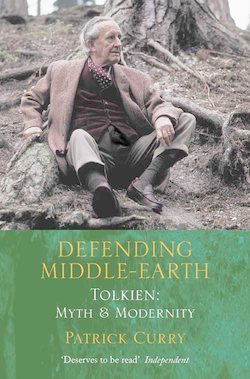Читать книгу Defending Middle-earth: Tolkien: Myth and Modernity - Patrick Curry - Страница 20
Radical Nostalgia
ОглавлениеCultural materialism not only seems to produce an inability to read, or to recognize other dimensions than power (narrowly meant) and its effects. Remarkably, even in that realm it falls down. Take nostalgia, for example. Fraser Harrison, whom I quoted earlier, agrees with Raymond Williams that ‘nostalgia recognizes no duty to history.’ He asks us to recognize, however, that:
there is another dimension to nostalgia and that it should not be dismissed as simply a self-indulgent, escapist and pernicious failing. Whereas its account of history is patently untrue, and more ideological than it would pretend, it does none the less express a truth of its own, which reflects an authentic and deeply felt emotion … Our addiction to it is surely a symptom of our failure to make a satisfactory mode of life in the present, but perhaps it can also be seen as evidence of our desire to repair and revitalize our broken relations. The pastoral fantasy nostalgia invented is after all an image of a world in which men and women feel at home with themselves, with each other and with nature, a world in which harmony reigns. It is an ideal …
Now Tolkien gives us to understand, as strongly as possible while still writing a story and not a tract, that nostalgia pure-and-simple will not suffice. In Middle-earth, it is the Elves whose nostalgia is the strongest – both in the sense of yearning for the past and attempting to maintain that past now, in places like Lothlórien and Rivendell. But the aristocratic and artistic Elves, despite their valiant resistance, plainly offer no real solution to the central problem of the Ring.
